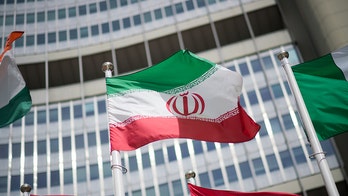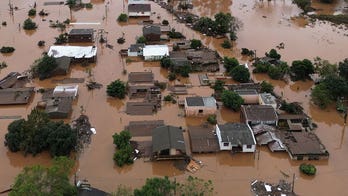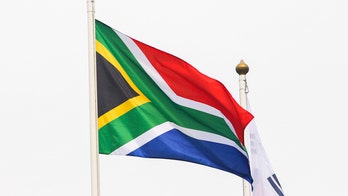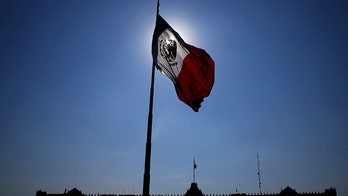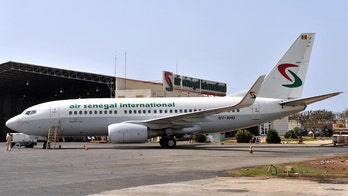Vice President Kamala Harris has announced the formation of a new partnership to help provide internet access to 80% of Africa by 2030, up from roughly 40% now. The announcement comes as a follow-through on Harris' visit to the continent last year in conjunction with this week's visit to Washington by Kenyan President William Ruto.

Vice President Kamala Harris has announced the formation of a new partnership to help provide internet access to 80% of Africa by 2030, up from roughly 40% now.
The announcement follows Harris' visit to Africa last year and with this week's visit to Washington by Kenyan President William Ruto.

Harris and the Kenyan leader were scheduled to have a fireside chat on Friday at the U.S. Chamber of Commerce about how public-private partnerships can increase economic growth.
A preview of Harris' initiatives obtained by The Associated Press outlines how she wants to follow through on the commitments she made to promote digital innovation when she visited Ghana, Tanzania, and Zambia.
Africa has struggled to receive the capital needed to build up its industrial and technological sectors. The United Nations reported last year that foreign direct investment in the continent fell to $45 billion in 2022, from a record high of $80 billion in 2021.
Africa accounted for only 3.5% of foreign direct investment worldwide, even though it makes up roughly 18% of the global population.
Besides launching the nonprofit Partnership for Digital Access in Africa to improve internet access, Harris, a Democrat, is announcing a new initiative geared toward giving 100 million African people and businesses in the agricultural sector access to the digital economy.
The African Development Bank Group along with Mastercard, among other organizations, will help form the Mobilizing Access to the Digital Economy Alliance, or MADE. The alliance will start a pilot program to give digital access to 3 million farmers in Kenya, Tanzania, and Nigeria, before expanding elsewhere.
Harris, the first female U.S. vice president, is also announcing that the Women in the Digital Economy efforts to address the gender divide in technology access have now generated more than $1 billion in public and private commitments, with some U.S. commitments pending congressional approval.
Harris' initiatives are part of a broader U.S. effort to engage with Africa and counter China's growing influence on the continent. The U.S. has pledged $55 billion to Africa over the next three years, focused on infrastructure, health, and economic development.
The Biden administration has also made a push to increase trade and investment with Africa. The U.S.-Africa Leaders Summit in December 2022 brought together leaders from both sides of the Atlantic to discuss ways to strengthen economic ties.
Harris' initiatives are likely to be welcomed by African leaders, who have been calling for increased investment in digital infrastructure and access. The continent has a large and growing youth population that is eager to embrace new technologies.
Expanding internet access in Africa has the potential to unlock significant economic and social benefits. It can help to improve education, healthcare, and agriculture. It can also create new jobs and boost economic growth.
Harris' initiatives are a step in the right direction. However, much more needs to be done to close the digital divide in Africa. The U.S. and other international partners need to continue to invest in digital infrastructure and access, and they need to work with African governments to create policies that promote digital inclusion.


